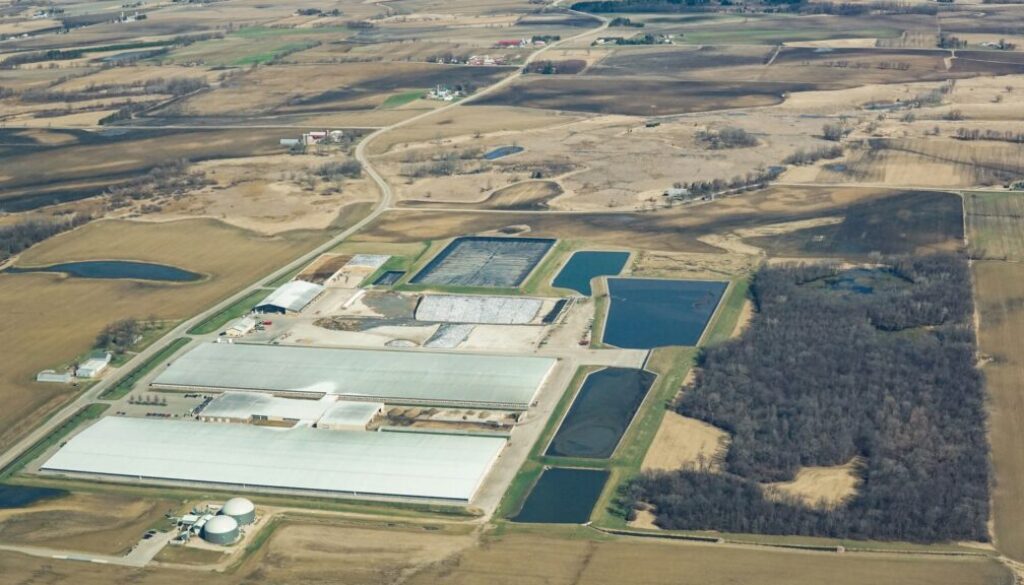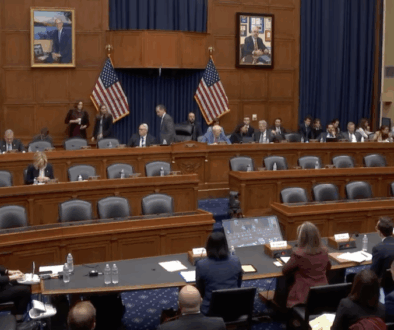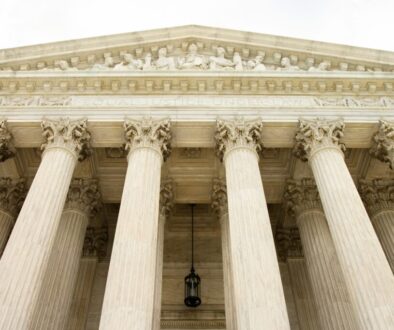Appeal seeks to force factory farms to disclose hazardous air emissions
Listen to the audio version of this article (generated by AI).
A coalition of food, environmental and animal welfare groups is appealing a recent federal court decision that upheld a US Environmental Protection Agency (EPA) rule exempting factory farms from publicly disclosing hazardous air emissions information.
The groups say the rule — which passed in 2019 under the first Trump administration and exempts large livestock farms from reporting their ammonia and hydrogen sulfide emissions — is unlawful and leaves communities near large livestock farms unaware of harmful air pollution.
“The owners of industrial factory farms don’t want to alert nearby communities about releases of dangerous gases like ammonia and hydrogen sulfide because they don’t want to be held responsible for the brain and lung damage and deaths their emissions can cause,” Ryan Maher, an attorney at the Center for Biological Diversity, which is one of the groups appealing, said in a statement.
Ammonia and hydrogen sulfide are common near animal feeding operations, which are large-scale livestock farms often with animals in confined areas. Both pollutants can cause health problems including respiratory diseases, nasal and eye irritation, headaches and nausea, and, at high enough concentrations, they can cause brain damage and even death.
“The owners of industrial factory farms … don’t want to be held responsible for the brain and lung damage and deaths their emissions can cause.” Ryan Maher, Center for Biological Diversity
The 2019 rule in question was upheld in August when a federal judge shot down a lawsuit brought by Rural Empowerment Association for Community Help and nine other organizations, which were pushing for the EPA to mandate air emissions reporting from animal feeding operations. US District Judge Timothy Kelly wrote in the decision that Congress exempted air pollution from animal waste from needing an EPA notification under the Comprehensive Environmental Response, Compensation and Liability Act (CERCLA).
“Congress’s CERCLA exemption for air emissions from animal waste at farms meant such releases were also exempted from [the Emergency Planning and Community Right-to-Know Act] … EPA had no leeway to consider the public’s right to access information,” Judge Kelly wrote.
However, the groups appealing the August ruling say that animal feeding operations are still required to publicly disclose these emissions under the Emergency Planning and Community Right-to-Know Act.
“People have a right to know when large-scale animal feeding operations are releasing hazardous air pollution near where they live, work, or their kids go to school,” Kelly Hunter Foster, a senior attorney at the Waterkeeper Alliance, which is one of the groups appealing, said in a statement. “EPA has a responsibility under [Emergency Planning and Community Right-to-Know Act] to ensure that information is disclosed to the public.”
The National Cattlemen’s Beef Association, a co-defendant along with the EPA on the original lawsuit and the appeal, praised the August ruling in a statement, saying the decision to keep the exemptions was appropriate and that laws that mandate emissions reporting “have been weaponized by animal rights activists seeking to target family farms and ranches.”
“CERCLA and EPCRA were intended to address the worst industrial and toxic chemicals, not govern family farms and ranches. This decision affirms that family cattle producers should not have to file reports for a natural, biological process under a law meant for significant chemical contaminants,” said Kaitlynn Glover, the association’s executive director of natural resources.
Featured image: Concentrated Animal Feeding Operation (CAFO) in Rosendale, Wisconsin. (Credit: Amelia Bates/Unsplash+)



